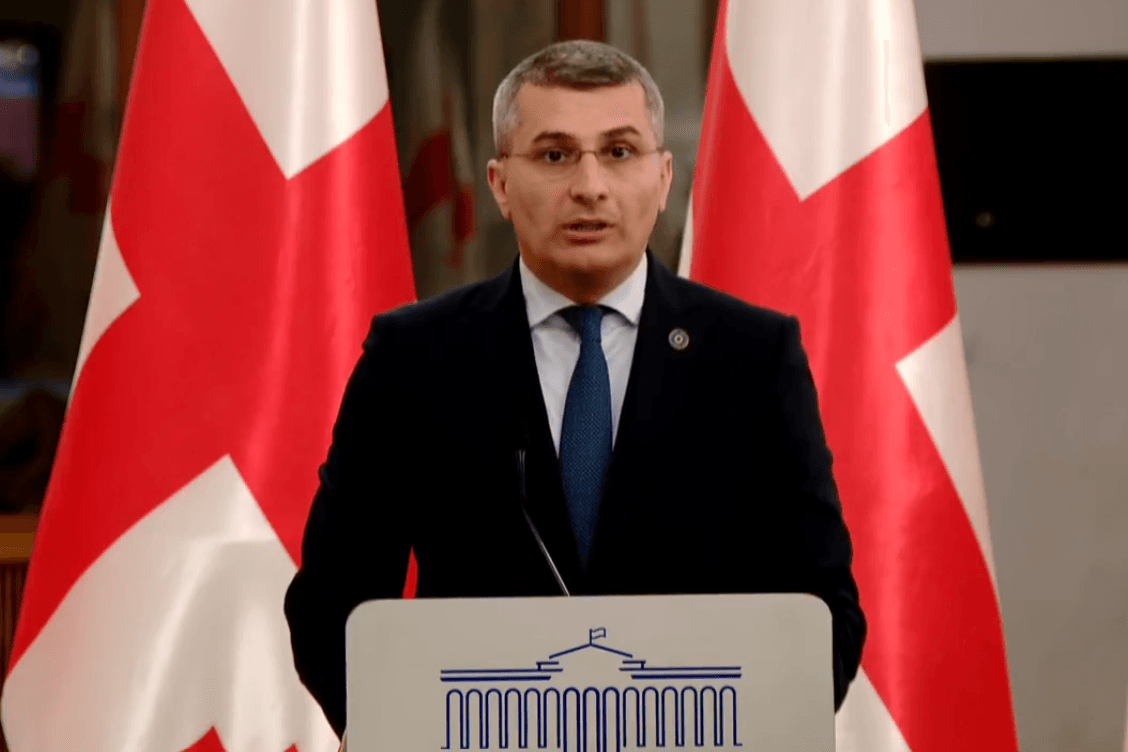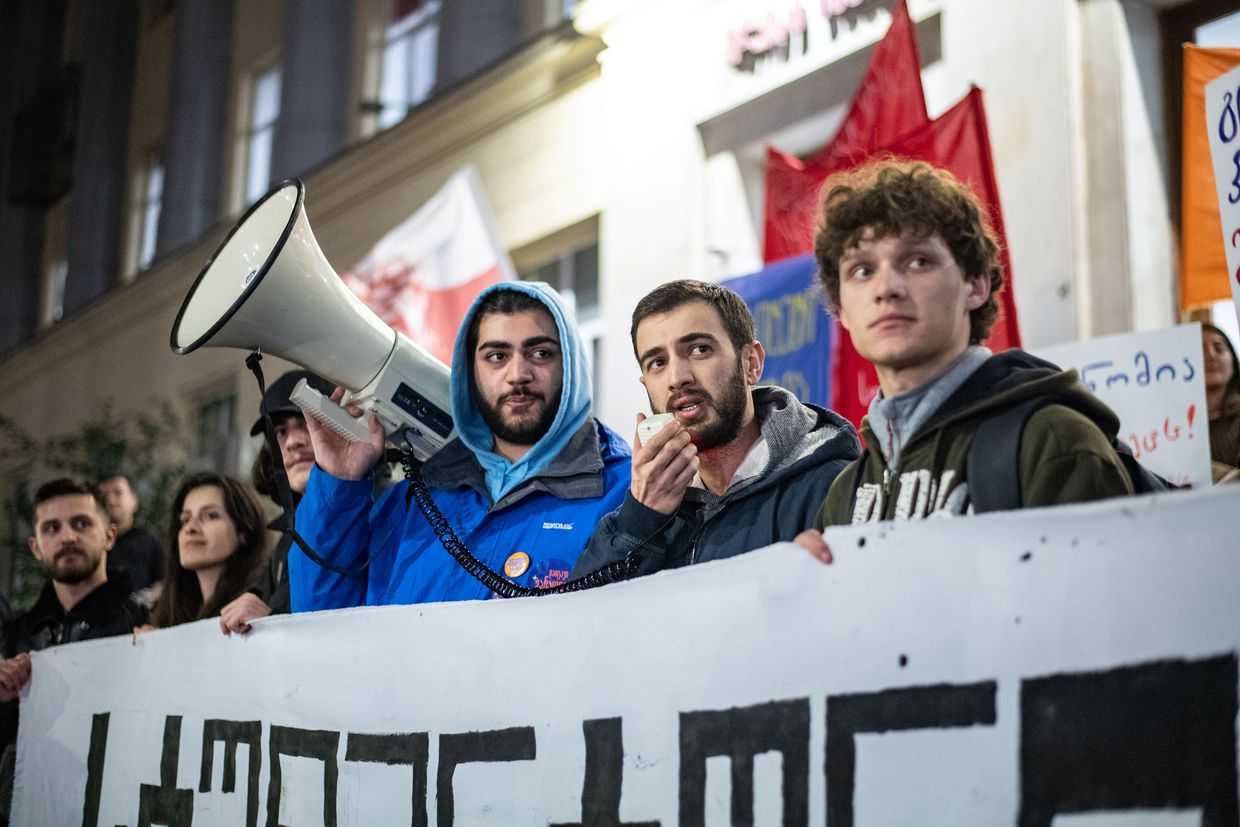
The ruling Georgian Dream party has announced plans to introduce new laws targeting media and civil society organisations, claiming they align with British and American standards. The party has yet to reveal any details about the upcoming laws.
The announcement was made on Wednesday evening by the party’s executive secretary, Mamuka Mdinaradze.
Mdinaradze said that, starting from Thursday, Georgian Dream will begin work on a media law that would restrict media funding from foreign sources and ‘establish standards for media objectivity and journalistic ethics’, as well as ‘define institutional mechanisms for monitoring and safeguarding these standards’.
While neither Mdinaradze nor the party have shared the draft texts of the law or further details about it, he said that the law would be ‘in line with the British model and legislation’.
He also announced plans to replace the controversial foreign agent law with a new law targeting civil society organisations.
The foreign agent law labels any civil society or media organisation that receives at least 20% of its funding from abroad ‘organisations carrying out the interests of a foreign power’. Such organisations must register as foreign agents in a special registry and are subject to monitoring every six months, which lawyers have warned could include forcing them to hand over internal communications and confidential sources.
Organisations that do not comply are subject to large fines. Many civil society and media organisations in Georgia receive their funding from the EU.
Mdinaradze referred to the existing law as a ‘lighter version’ of the American Foreign Agents Registration Act (FARA) and stated that the law they are now planning to adopt will be a ‘direct copy’ of the current version of FARA.
Upon its introduction of the foreign agent law for the first time in 2022, People’s Power, the Georgian Dream satellite group which authored the law, also said that the foreign agent law would be a copycat of FARA.
Under FARA, a foreign agent is defined as any person (legal or physical) who is under the control of, or acts at the direction of, a foreign power and acts in the interests of that foreign power.
In addition, under FARA, media organisations, even if foreign funded and foreign owned, are not labeled as foreign agents as long as their policies are not actively directed by a foreign power.
FARA was originally enacted in 1938, in the leadup to World War II, when the US was facing sustained threats of foreign influence from Nazi Germany and the Soviet Union, which were both considered to be hostile powers. As a result, the legislation was targeted at individuals and countries considered to be foes of the US. Until President Donald Trump's first term in 2017, it was rarely employed beyond being used to force foreign lobbyists to register.
In its report on the foreign agent law in May 2024, the Venice Commission also dismissed comparisons between FARA and the controversial Georgian law, saying that the US ‘does not generally require’ NGOs and media organisations which have received foreign grants and support to register as foreign agents under FARA.
‘In sharp contrast to FARA and similar laws, the Georgian Law presupposes that anyone receiving foreign support will act in pursuit of the interests of the foreign funder (referred to as “foreign power”), by triggering an automatic, unevidenced, and irrebuttable presumption of some form of influence or control of the work of the recipient by the donor’, the report continued.
Mdinaradze said that the new law regulating civil society organisations was needed because ‘several dozens of the wealthiest’ organisations have not registered as foreign agents.
Mdinaradze has also refused to provide further details as to what this new legislation would look like.
Other new legislation
Mdinaradze also announced plans for additional legislative initiatives and amendments, including a package that would remove any obligations for the state to allow civil society to take part in legislative decision-making processes.
Mdinaradze also said that public sector institutions can choose to not receive foreign aid at the discretion of the public institution’s head. These restrictions apply to direct and indirect salary supplements and funding for training or visits.
He also announced plans to introduce stricter drug laws, as well as changes to laws regarding juvenile justice and migration.
Mdinaradze additionally announced plans to simplify the appointments or dismissal of heads of legal entities under public institutions, which he said will be determined by ministers or the heads of public institutions.
Georgian Dream has already changed public sector-related legislation amidst ongoing anti-government protests, simplifying the dismissal of public employees. Following this, several public servants complained that they were dismissed due to their political views.

Prior to his briefing, Georgian Dream and its satellite group, People’s Power, passed controversial amendments to the criminal and administrative offences codes, which tighten punishments often used against activists and demonstrators.
Georgian Dream said that the amendments and the new legislative packages were necessary to fight the ‘influence of external forces’.











